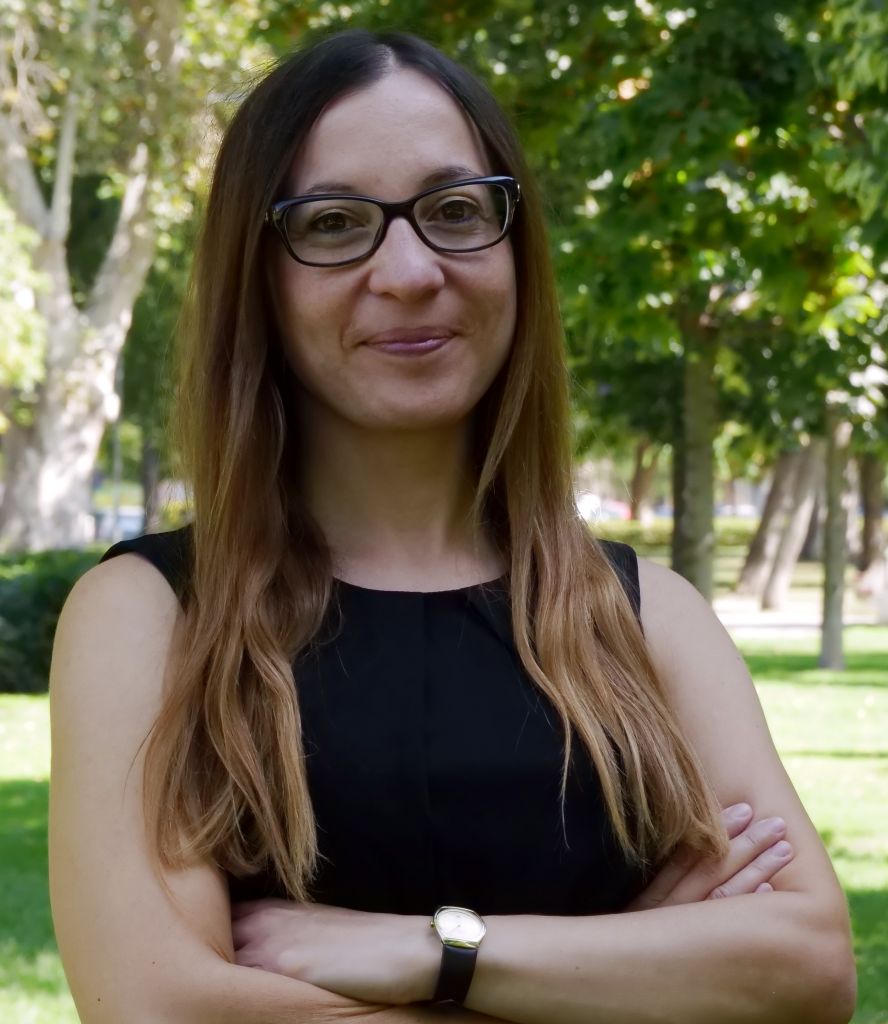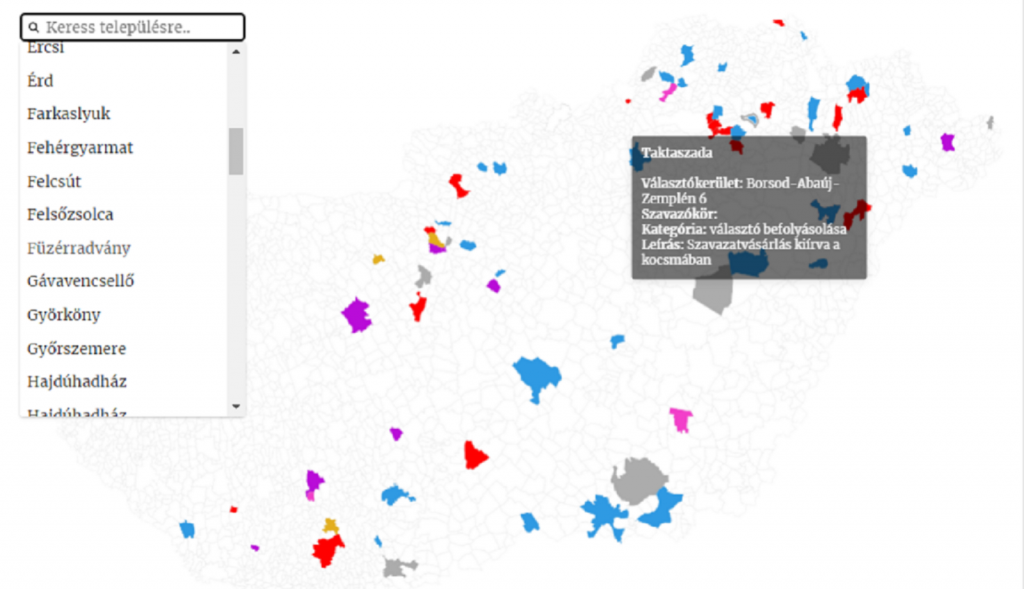The https://english.atlatszo.hu use cookies to track and profile customers such as action tags and pixel tracking on our website to assist our marketing. On our website we use technical, analytical, marketing and preference cookies. These are necessary for our site to work properly and to give us inforamation about how our site is used. See Cookies Policy
Election fraud cases geolocated, based on reports from civil delegates on election day
With the help of the 20,000 Delegated Poll-Watchers in ‘22 (20k22) group, we have mapped where civil delegates have made their declarations for the parliamentary elections on 3 April. Nearly 100 cases that were deemed significant were collected. The map shows 24 municipalities where voters were transported by car or bus. Places where people who were completely incapacitated, elderly or with dementia voted with “help” were also shown. Several reports clearly show that members of the electoral commission were actively involved in fraud. The map also shows the municipalities where pubs and churches are reported to have been involved in electoral fraud.
Buying votes is punishable by up to three years in prison, for those who buy votes as well as those who sell them. However, in Hungary, the authorities are not interested in what goes on outside the polling station. Some voters were transported to the polling stations in an organised way, they were told in advance who to vote for, in return for which they would receive some kind of reward (money, food etc.). We have added 24 such cases to the map. Typically, it was observed in municipalities with less than 10,000 inhabitants across the country. Most of the reports were concentrated in Borsod, one of the poorest counties in the country, but cases were also reported from Budapest.

This is how Orban’s campaign machine worked: disciplined delivery of the expected number of votes
Before the elections, in March, we reported that Átlátszó had obtained a table, presumably leaked from governing party Fidesz, on the settlements of parliamentary constituency No.5 of Borsod-Abaúj-Zemplén county, which among other things included the target numbers of votes cast for the governing parties per settlement.
The votes of vulnerable people were also influenced. The ballot box is available to voters who can only exercise their right to vote at home, usually because of their health. The situation in the nursing home is special, and the picture that emerges from the four reports is truly depressing. The following report was received from Tolna County:
‘Assisting voters unable to vote in a social home. Voting out completely incapacitated, elderly, demented people, several of whom had to hold hands and pull the X. 15 cases. Orban is the leader of a zombie army…’
20k22 sent delegates to the ballot counting committees. Counting committees are made up of at least five members: three are chosen by the local council from among local voters, and two may be delegated by the parties standing in the election. The 20k22 group was necessary because in the 2018 parliamentary elections, a significant number of counting commissions had no or insufficient opposition councillors. This year, 99.4% of polling stations had at least one opposition delegate.
Under the category irregularities, we listed 15 incidents, for example the observers recorded a case where invalid votes were accepted as valid. Under the category of voter influence, we listed 39 incidents, with the following being the most serious reports. In one case a local ethnic “leader” returned to the polling station with people, showed them who to vote for, and then took a photo of them putting it in the ballot box (Győr-Moson-Sopron county). At local level, pubs and churches are also reported to have been involved in election fraud. In Nógrád county, it is reported that “after mass, the priest escorted 20 people to the polling station where he watched everyone cast their votes.”
Election fraud notifications by municipality
In a video captured by Átlátszó on election day, the perpetrators committed the fraud in broad daylight near a voting station on a main road. Several voters were involved in the fraud. They gave the ballot paper to a man in a car, and presumably took the reward from the other man at the fence. Chain voting is a way of checking people’s votes, as voters take the blank ballot paper out of the polling station, fill it in and pass it on to the next person in the chain.
This is how chain voting looks like: voters cast their ballots through the window of a car parked near voting station in Putnok
In the video captured by Átlátszó, the perpetrators committed the fraud in broad daylight near a voting station on a…
Several incidents of suspected electoral fraud were recorded by observers during the parliamentary elections in various regions of Hungary. Most cases point to vote-buying, largely involving the impoverished Romani population. Despite the reports, unless the police or the prosecution launches in-depth investigations about each case – which normally does not happen – it is unlikely that there will be any consequences.
Votes for money or food, chain voting – election fraud recorded across the country
Several incidents of suspected electoral fraud were recorded by observers during Sunday’s parliamentary elections in various regions of Hungary. Most cases point to vote-buying, largely involving the impoverished Romani population. Despite the reports, unless the police or the prosecution launches in-depth investigations about each case – which normally does not happen – it is unlikely that there will be any consequences.
Translated and written by Szilvia Zsilák, infographics by Krisztián Szabó. The original, Hungarian version of this story can be found here.

